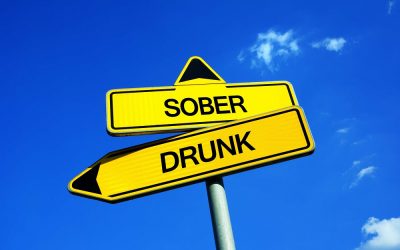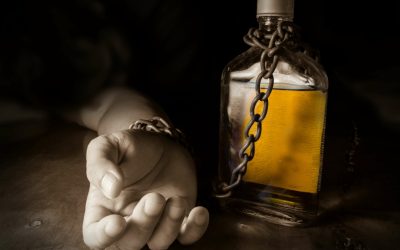Our mission is to help people respond effectively to substance use and related problems. As with all things 12-step, the emphasis on accumulating “time” and community reaction to a lapse varies profoundly from group to group, which makes generalizations somewhat unhelpful. However, broadly speaking, there are clear features of 12-step programs that can contribute to the AVE. Triggers include cravings, problematic thought patterns, and external cues or situations, all of which can contribute to increased self-efficacy (a sense of personal confidence, identity, and control) when properly managed. Prioritize self-care activities that promote physical, emotional, and mental well-being.
Modifying Environmental Factors
- For example, if dieters eat “forbidden” foods (e.g., a piece of brownie) their diet is ruined.
- Have you ever made a determination to start a new habit and have you been able to stay 100% dedicated to it through the remainder of your life?
- In particular, these modifications fail to specify accurately the AVE’s occurrence and influence in the offense cycle.
- Recognize that setbacks are common during recovery and do not equate to failure.
- It has been proposed that internal, stable, and global attributions for the cause of a lapse following a period of abstinence and concomitant feelings of guilt and loss of control increased the probability of a return to regular substance use.
Our first instinct should be to figure out a relapse prevention plan that addresses the faults we have identified. This is an important measure, but it doesn’t do much for relapse prevention if we don’t forge a plan to deal with these disturbances when they arise. Sometimes, it begins from the very moment we even consider the notion of using again. If AVE sets in pre-emptively, it may actually lead us to the relapse we so desperately fear. Those who wish to become sober—and stay that way—must therefore learn to identify abstinence violation effect and the dangerous ways in which it might impact our recovery.
Learn From Relapse
It’s important to challenge negative beliefs and cognitive distortions that may arise following a relapse. Most people who try to change problem behaviors — whether it’s overeating, overspending or smoking cigarettes — will slip at least once. Whether that slip provokes a return to full-blown addiction depends in large part on how the person regards the misstep.
This SMART Recovery site doesn’t match your location
When you’ve experienced some success in your recovery, you may think that you can return to drug or alcohol use and control it. You may think that this time will be different, but if your drinking and drug use has gotten out of control in the past, it’s unlikely to be different this time. If you experience a setback in your mental health journey, reaching out for professional support is a sign of strength, not weakness.
Overcoming Setbacks: Building Resilience in Recovery
Nearly all other prominent models of addiction and relapse focus on the psychophysiological determinants of drug priming and reinforcement (e.g., Baker et al., 1986; Kalivas & Volkow, 2005; Koob & Le Moal, 1997; Robinson & Berridge, 2003). Specifically, relapse is predicted to be more likely when lapses produce an abstinence violation effect (AVE), characterized by internal attribution of blame, reduced abstinence self-efficacy, and feelings of guilt. This constellation of responses, coupled with the subjective effects of drug ingestion, is posited to predispose the person to further lapses, thus driving the lapse-relapse process in an accelerating downward spiral (Marlatt & Gordon, 1985). A focus of relapse-prevention treatment has been on helping those who lapse manage the AVE and maintain or reestablish abstinence from the undesired behavior.

“People with a strong abstinence-violation effect relapse much more quickly,” says Marlatt. A single slip solidifies their sense that they are a failure and cannot quit, creating a self-fulfilling prophecy. I’ve heard of AA meetings where a member with over 10 years of sobriety ends up drinking (let’s say as an attempt to cope with the loss of a loved one or other tragic event). Many would rather keep on drinking rather than come back to a primary source of Sober living house support in shame. It seems akin to failing one exam during senior year in high school and being sent back to first grade as a result!
Amount smoked per lapse

No study conducted to date has leveraged this methodology to empirically examine the AVE as a cascading phenomenon that affects lapse progression during the smoking cessation process. Any smoking after initial cessation, ranging from a single puff to multiple cigarettes, can be considered a lapse (Brownell et al., 1986; Shiffman et al., 1986). Yet smoking is only theorized to elicit an abstinence violation effect when it disrupts ongoing abstinence. Even when it remains below the level of full-blown relapse, smoking that is part of a routine pattern of daily use may not produce an AVE, because there is no abstinence to violate.
How to Prepare for Trauma Therapy Work in Philadelphia
Anxiety, depression, loneliness, and irritability are all symptoms of this stage. It is inevitable that everyone will experience negative emotions at one point or another. It is abstinence violation effect not necessarily these natural emotions that cause emotional relapse, but how you cope with them, that does. Building resilience isn’t about never falling—it’s about learning to get back up stronger. When it comes to recovery, understanding how to bounce back from challenges can transform temporary setbacks into powerful stepping stones for growth. For instance, a person recovering from alcohol use disorder who has a drink may feel a sense of confusion or a lack of control and they may make unhealthy attributions or rationalizations to try to define and understand what they’re doing.
” I refer to this as a case of the “screw-it’s” (although harsher language is not uncommon!); a sense of giving up. A period of successful recovery and abstinence is something to be celebrated. However, it can sometimes lead to the thought that you have earned a drink or a night of using drugs. It sounds counterintuitive, and it is, but it is a common thought that many people have to recognize to avoid relapse. Celebrating victories is a good thing, but it’s important to find constructive ways to appreciate your sobriety.